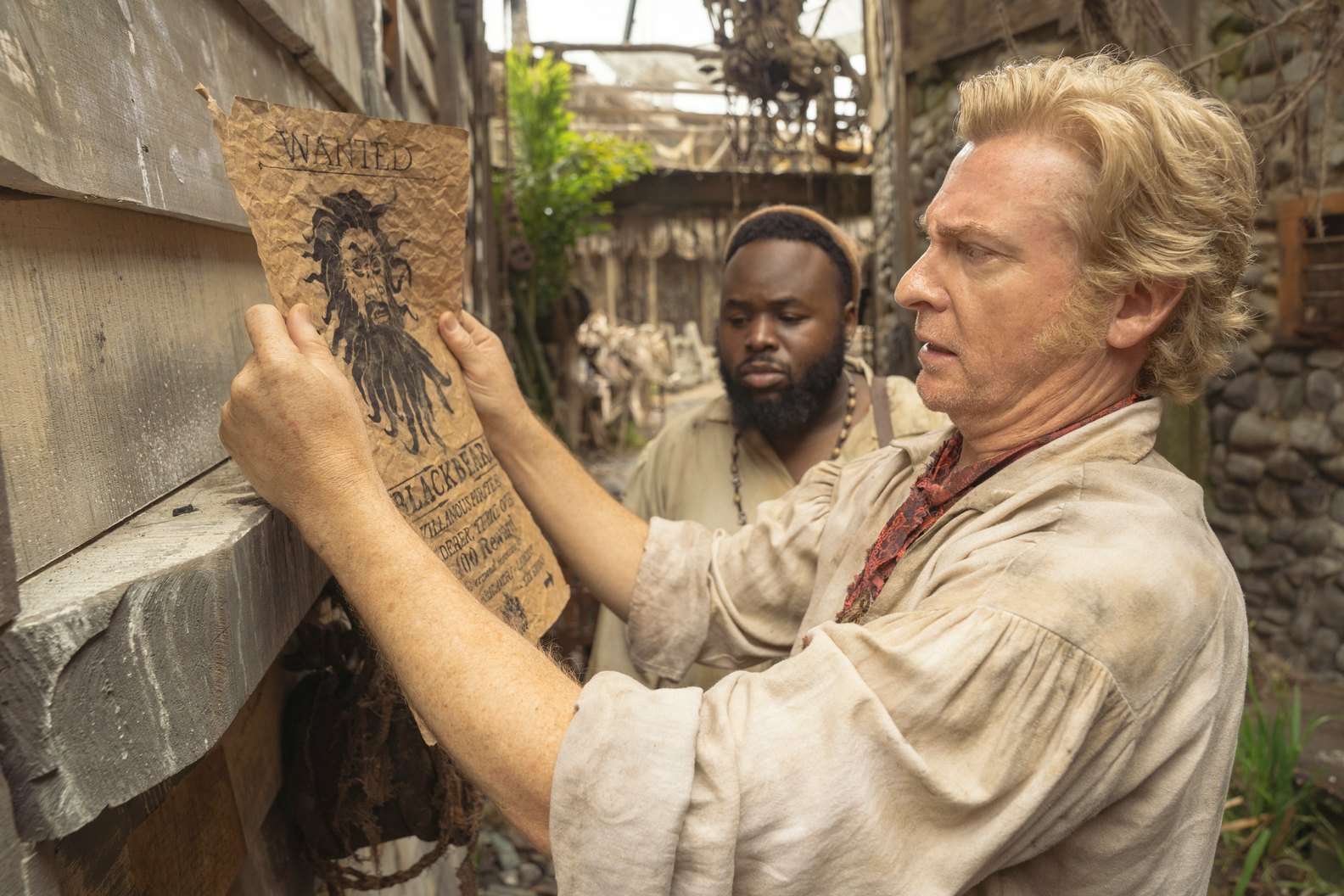
David Jenkins remembers when he realized exactly what kind of show Our Flag Means Death was. They were shooting one of the first scenes between Rhys Darby’s Stede Bonnet and Taika Waititi’s Blackbeard, who share a rare moment of vulnerability. In the sixth episode of Season 1, Ed sheds his Blackbeard persona to tearfully reveal to Stede his original plan to kill him and take his identity. He’s open. He’s raw. He’s sad. And in the face of that vulnerability, Stede assures him, “I’m your friend,” and they embrace. Thus begins a beautiful romance.
“Watching them shoot... they’re just really tender and very sweet with each other,” Jenkins tells Inverse. “And the chemistry was there immediately.”
Jenkins always intended his pirate comedy to end with a romance, but he’d envisioned it as an unrequited love. “It was going to be about Stede learning what love is, and Ed making himself vulnerable and getting burned,” Jenkins says of his original pitch. But Darby and Waititi’s choices in the scene, which they played without diffusing the tenderness with a joke, made him wonder if they could take the show in a new direction.
“Rhys plays things really honestly. But watching them both decide to do that on that scene and both understand what it was, I thought, ‘Oh, this is really exciting,’” Jenkins says. “By the time we got to the end of the first season, it was like, hell yeah, I want to see where this romance goes.”
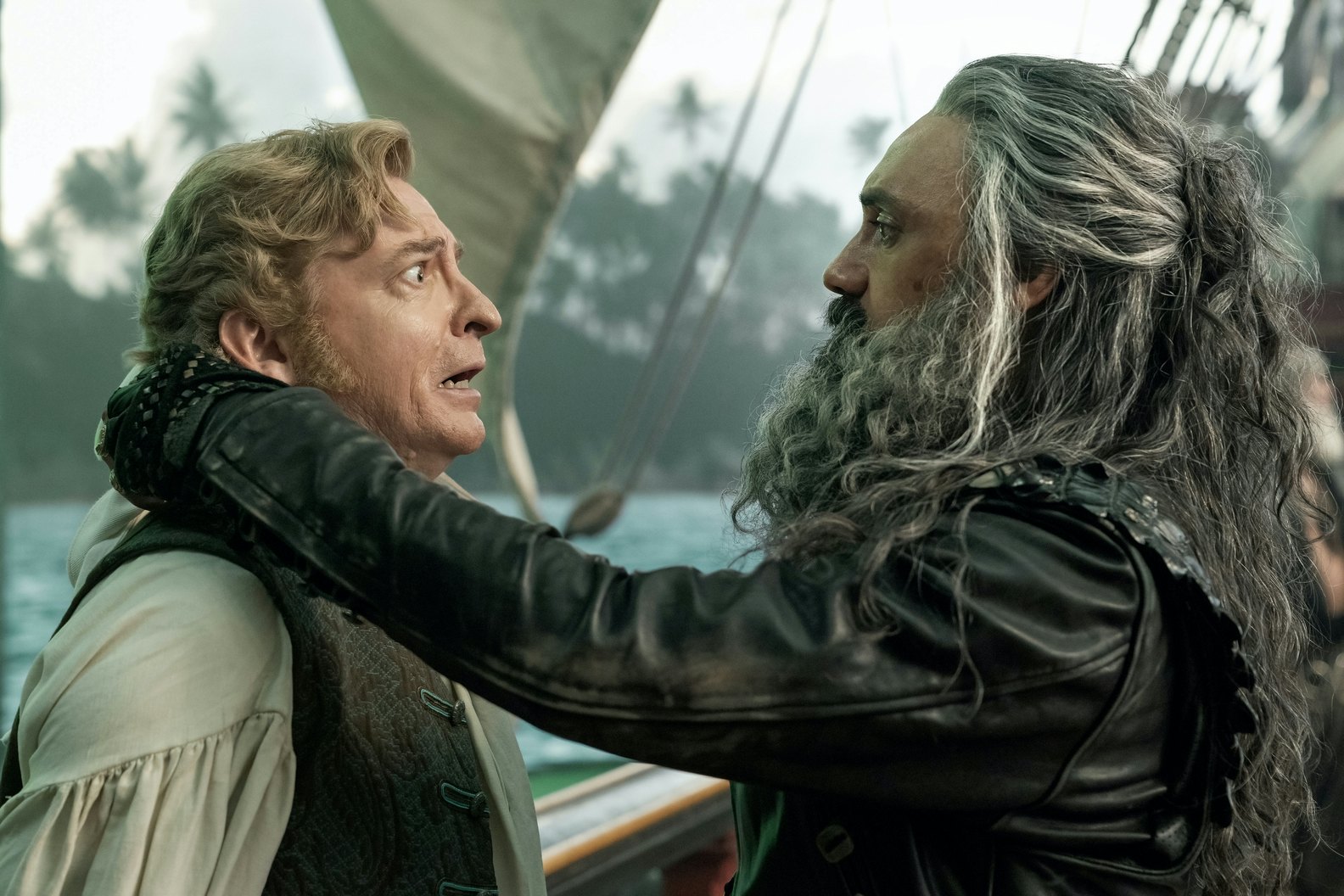
So Season 2 of Our Flag Means Death goes full-blown romantic comedy. Stede and Ed are yearning. They send messages in bottles to each other, or in the case of Ed, process their grief by violently crashing weddings. And by the end of Episode 3 (now on Max), they’ve reunited, though it’s not quite the reunion either imagined. But Jenkins says their strange mermaid-themed reunion had been something he’d envisioned since Season 1.
“We talked about Stede as a mermaid very early on in the writers’ room,” Jenkins says. “At some point, yeah, I want to see Rhys Darby as a merman.”
Inverse spoke to Jenkins about the pressure to reunite Stede and Ed in Season 2, why historical accuracy never matters, and why Con O’Neill is the only answer to the “Who would be the human if everyone else were Muppets?” question.
This interview has been edited for clarity and brevity.
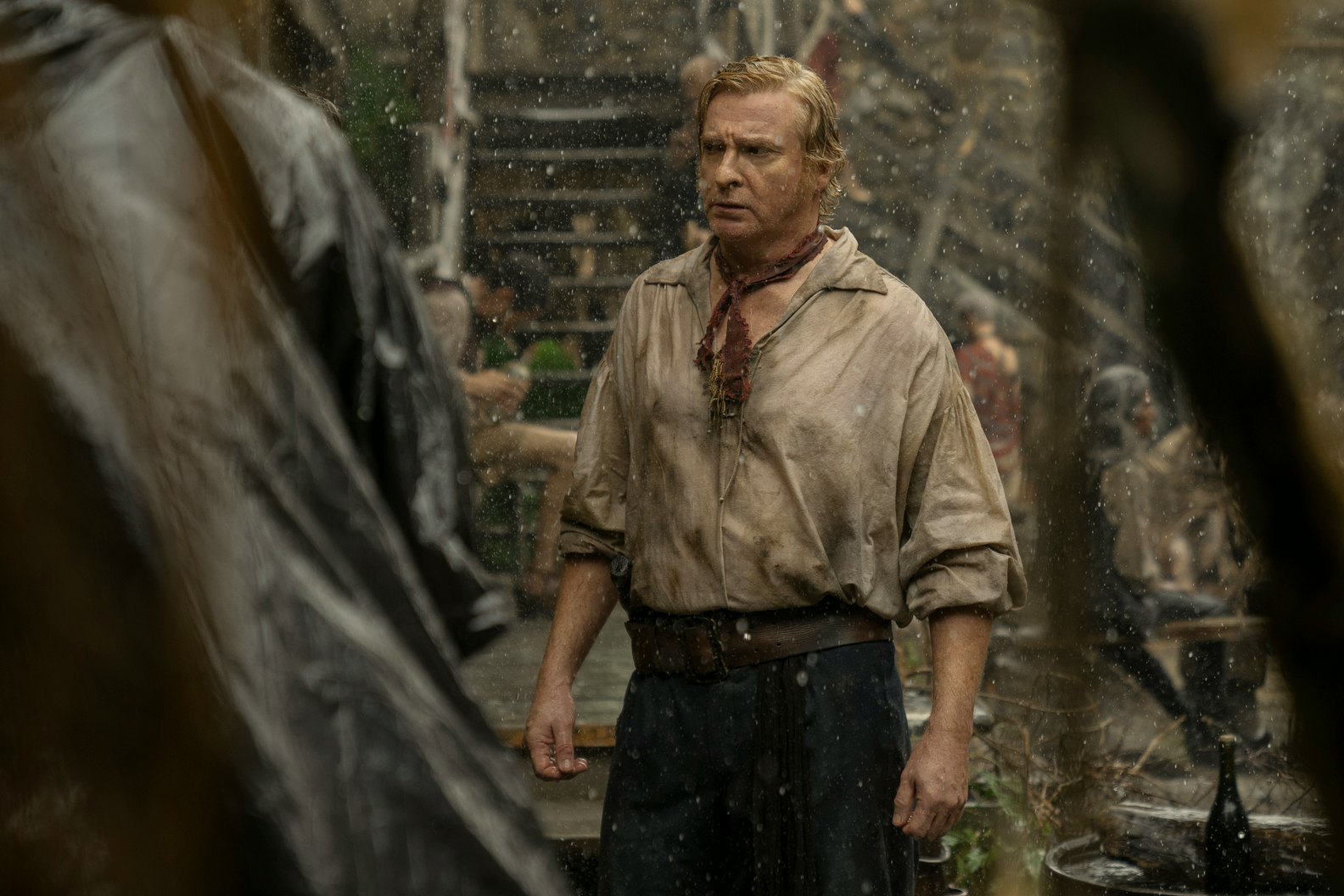
I have to talk about the fan reception of Our Flag Means Death. Did you expect that when the show finally came out? When you finished doing the show, you must have realized, “Oh, we have this special thing,” but the fan reception elevated it to another level.
Yeah, you feel kind of nervous when you do your thing. You’re like, “Aah, I like this. I hope somebody else likes it.” I got Rhys to dress up like a pirate and made him be vulnerable, and Taika to dress up like the Road Warrior and put himself out there. Those guys are like my much, much older brothers, and you feel like you dressed them up for Halloween a little bit. But you don’t know how it’s going to be received.
So to watch it be met with that level of enthusiasm and kindness, it bowled all of us over. And it moved all of us, and made it exciting to make a second season.
Going into Season 2, how much pressure did you feel to fulfill all that anticipation for the reunion of Stede and Ed? Historically, that’s not something that happened.
No, historically, they got mad at each other. They had a falling out. And then I think Blackbeard burned his ship and stranded its guys, and then they never found each other. And Blackbeard got beheaded. It’s awful. You can’t see that version of it. So I think the thing that’s fun is when we write the show, we’re all fans of the show, so we like the taste of our own cooking in that room. So I think that it’s just for us, what’s exciting, and pretty quickly you see what people perk up to when we’re talking, and then it’s like, “Oh yeah, what if this happens?”
The big concern was I didn’t want to string it out. I didn’t want them to be missing each other and not seeing each other for most of the season. The more interesting thing to me is, how do these two characters find a more mature version of love with each other than just kissing, saying they’re going to run away together, and then chickening out? How do they get to a form of love that someone in their 20s might have, as opposed to a couple of 14-year-old boys?
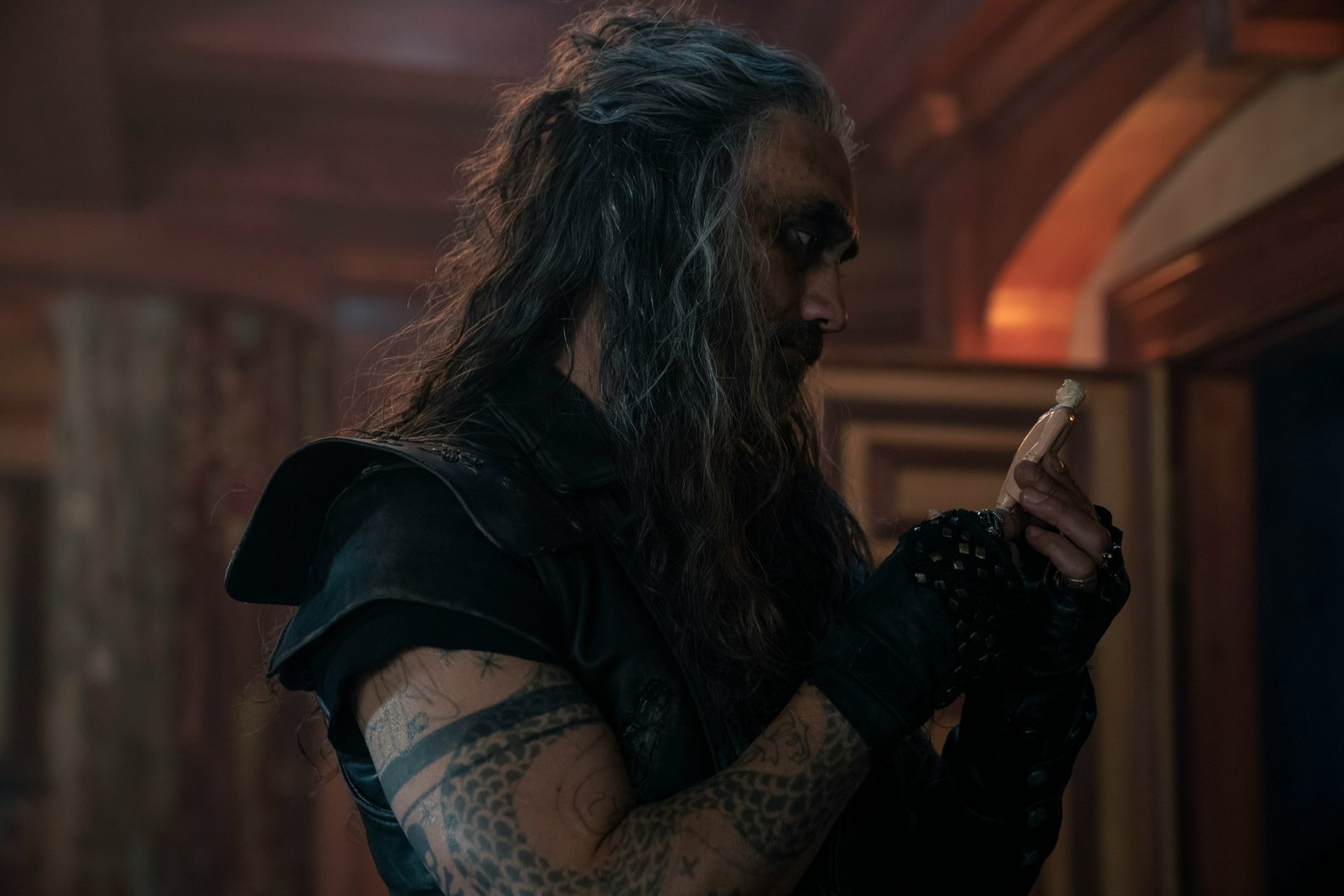
Did you have one idea for how the reunion would play out between Stede and Ed, or were there multiple versions left on the cutting room floor?
I think the mermaid sequence to “Woman’s Work” [by Kate Bush] was the initial idea for me. We talked about Stede as a mermaid very early on. So for Season 2, that was one of those sequences where I know where that goes. I know what track I want.
And then there are certain sequences where you just storyboard it, you protect it, you license the music, and then you write that sequence to time code, and you really make sure that it is as big as it feels. And there are very few times you can capture something that feels like beauty, but that sequence feels beautiful to me. Seeing Rhys as a mermaid when his face pops up, there are very few times where you feel like, “Oh, we got some beauty today.”
You talk about the Stede as a mermaid as if it was a natural idea, but I need to know where it came from.
I don’t know how we were talking about it. They wanted us to come up with a Season 2 pitch during Season 1. And that was one of the ideas we hit on, and I can’t quite remember how we got there, but it was us asking, what is a pirate world? Are there mermaids? Is there magic in this show? With pirate stuff, I don’t know that I want there to be magic, but there was a way where it was something really beautiful about a mer-person, and I like the idea that their coming together would have a mythic size to it.
And in talking about it, it just felt right. Where at some point, yeah, I want to see Rhys Darby as a merman. We get to have Warner Discovery throw a bunch of money at us to make Rhys Darby into a mer-person.
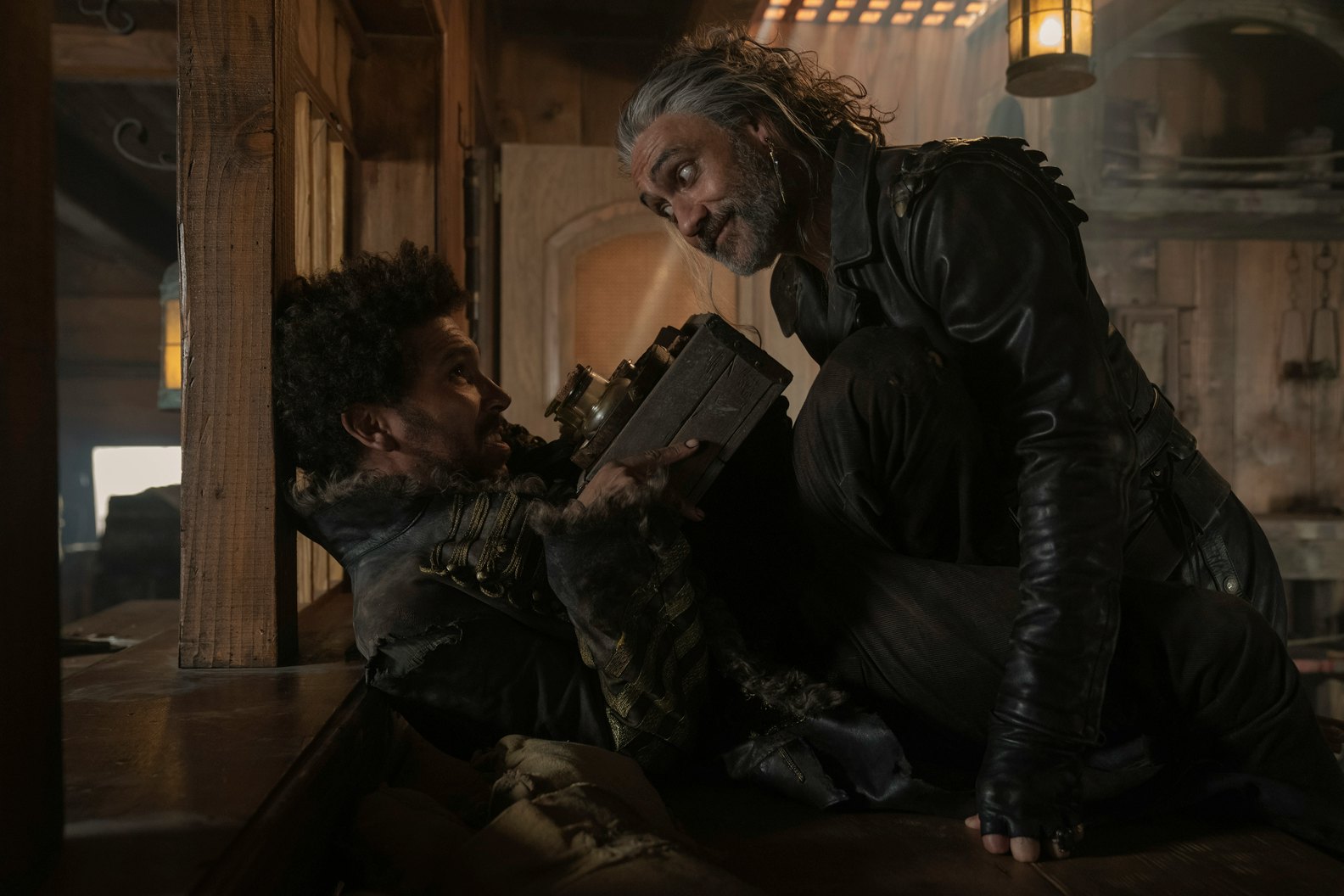
With the way that the show is very much diverging from real-life history, does that give you the freedom just to do what you want? Is the world your oyster?
Yeah, I think so. I like that there is violence on the show with consequences. Like Izzy losing his leg, and he has kind of a Lieutenant Dan season as a result. And I like that. I like that the world doesn’t totally repair, and there is a world where they die, but boy, it’s nice to see them navigate each other and save it from that.
And I think that’s the fear of all of our personal relationships. How long can we keep this relationship going? How healthy can we make it? And I think the world is your oyster on the show, but you need some boundaries. And to me, I think if you make it about the personal stakes of how do you keep a relationship going, and what do we want from a relationship, and what do these two guys want from a relationship? It gives you some pretty clear naturalistic boundaries to work against.
Our Flag Means Death has never been a very historically accurate show, but it keeps to broad historical beats, like the introduction of real-life pirates like Zheng Yi Sao. Do you have a balance you need to keep between allowing anachronisms and paying tribute to history?
Yeah, I think so. I mean, “tribute” is way too kind. Zheng Yi Sao was 100 years apart from Blackbeard and Stede, so we’re collapsing them. And you couldn’t possibly do justice to Zheng Yi Sao in a season of a television show. She’s the most successful pirate ever. And I think that when you’re looking at this show, very early on when I was writing and Taika was like, “Don’t do any research, man. Don’t do any research.” And it was like, “I won’t, I won’t, I don’t want to.” And that’s the fun of it.
But you can’t have a bicycle appear. You can’t have a blender. It turns into The Flintstones if you do that. You need to go with just kind of a feeling of, “No, that’s too far. No, we can’t do that.” So you can pick from all these interesting people, and then you don’t have to do the real version of them. You do a version of them that fits the show.
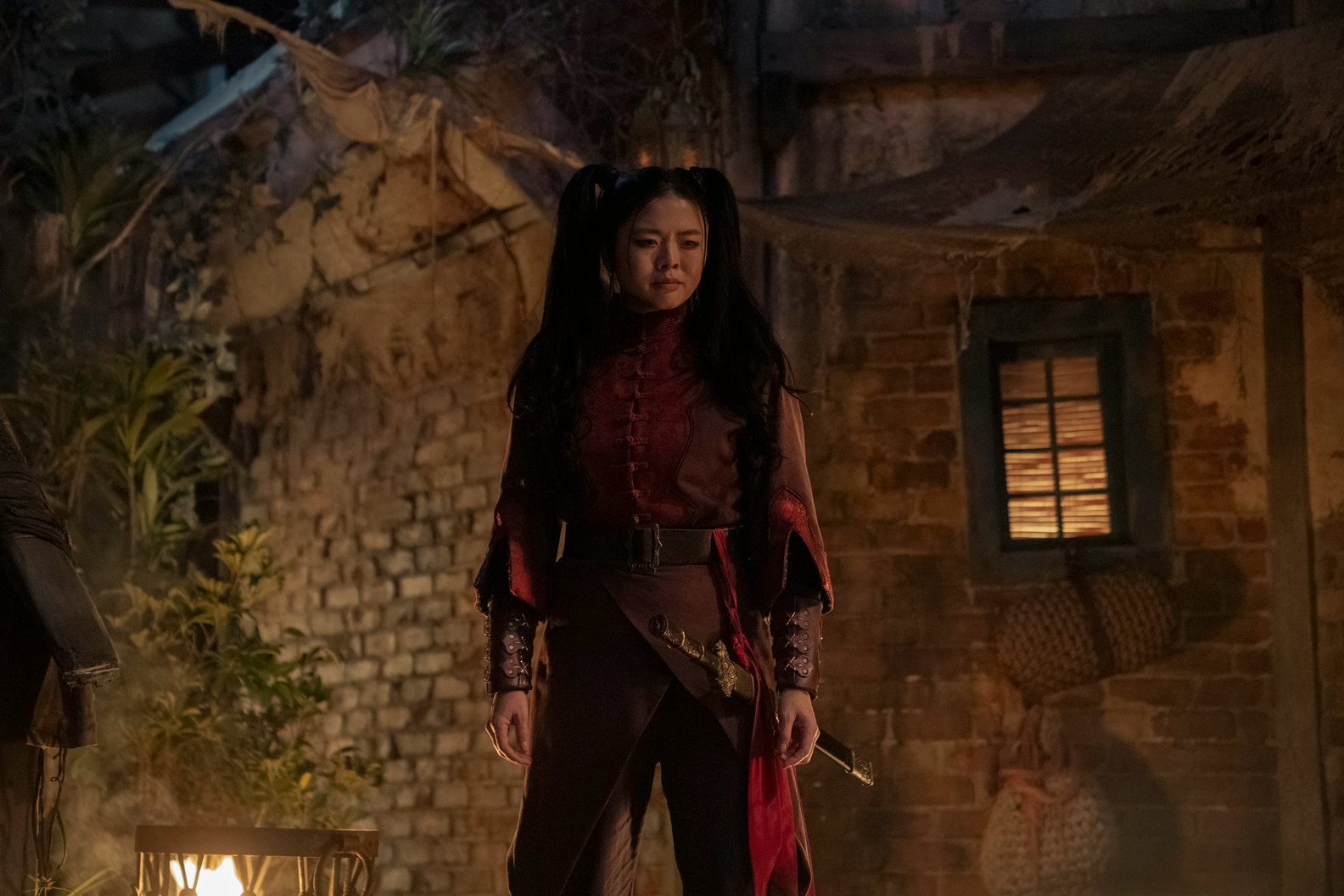
So in Season 2, it feels like a dam breaks in terms of how accepted the LGBTQ relationships are within the world. So all these pirates are in queer or open relationships, or polycules, but is this something that feels like a pure invention for the show, or was there any actual research that could back this up?
I mean, matelotage existed, like marriage between crew members. They were doing a lot of the principles of a social democracy among themselves as pirates. And I think the history that we get, a lot of the fiction that we get and stuff that’s supposed to be historically accurate, I think this is more accurate, in a way. It’s like, they’re fucking weird. They’re weird, they’re poor, they’re outsiders who didn’t fit into their given structure, and then they made their own structure that worked for them. There’s a reason they were out at sea doing this stuff, because they didn’t fit in on land.
Whenever you have that, you have people who are not normative. And whenever you have people who are not normative, it’s not just a bunch of white guys in blowsy shirts who are straight on a damp wood ship. I’m sorry. It’s just not that. I don’t believe that for a minute.

One silly question. I think I’ve heard you make the Muppets comparison before, but if there were a Muppets Christmas Carol version of Our Flag Means Death—
Ooh, stop reading my diary. Get out of my head.
If the whole cast were Muppets, and one person was human, who would be the human, and who would be the Muppets?
Always, always, Con O’Neill would be human. Always. Izzy’s got to be the human. He’s got to be the Charles Grodin of the Muppet Caper. He is like, “What the hell? I have to deal with all these Muppets. Oh God. Oh God.” Whoever would be the most aggravated person to be surrounded by Muppets has to be human.







